NATIONAL SECURITY ISSUES
- Head of the Interior Affairs Committee of the House of Representatives (HoR), Suleiman Al-Harari, expressed his strong condemnation of the dangerous security escalation in the capital, Tripoli. Al-Harari stressed that the fighting in the city’s streets poses a threat to the lives of civilians, public and private properties, and civil institutions . Head of the Committee called for an urgent investigation to be launched to uncover the circumstances of the past events and the cause of the outbreak of armed clashes in Tripoli .
- Libya’s outgoing prime minister directed top security officials in Tripoli to roundup any individuals suspected to be involved in Saturday’s attack against his forces in the capital. Abdul Hamid Dbeibeh called on the leaders of the Ministry of Interior, Military Prosecution and “all relevant security services” to arrest suspects “without exception, whether they were militants or civilians,” according to the document released by Dbeibeh’s media office.
- Relative calm restored on Sunday, August 28, in Tripoli after a day of deadly violence between militias backed by Libya’s two rival administrations. At least 32 people were killed and 159 injured, said the Health Ministry of the Government of National Unity. It added that 64 families were evacuated from areas around the fighting. Among the fatalities was Mustafa Baraka, an actor and comedian known for his social media content. Baraka died after he was shot in his chest, according to press reports. The international community, including western powers such as the U.S., UK and Italy, have condemned the violence and called for end to all hostilities. Meanwhile, the U.N. reminded “all parties of their obligations under international human rights and humanitarian law to protect civilians and civilian objects.”
- Health Ministry has announced that 13 people were killed as a result of the clashes in Tripoli. The ministry stated that the total cases – the initial outcome – as a result of the clashes in the capital, Tripoli, amounted to 108 cases, including 13 deaths and 95 injuries of varying severity. The ministry confirmed that the number of hospital discharge cases, after receiving the necessary medical care, has reached 38.
- The United Nations Support Mission in Libya (UNSMIL) is “deeply concerned” about ongoing armed clashes in Tripoli, which caused death and injury of dozen civilians. Intense fighting erupted in the Libyan capital overnight and lasted into Saturday morning, leading to indiscriminate medium and heavy shelling in civilian-populated neighborhoods in Tripoli.
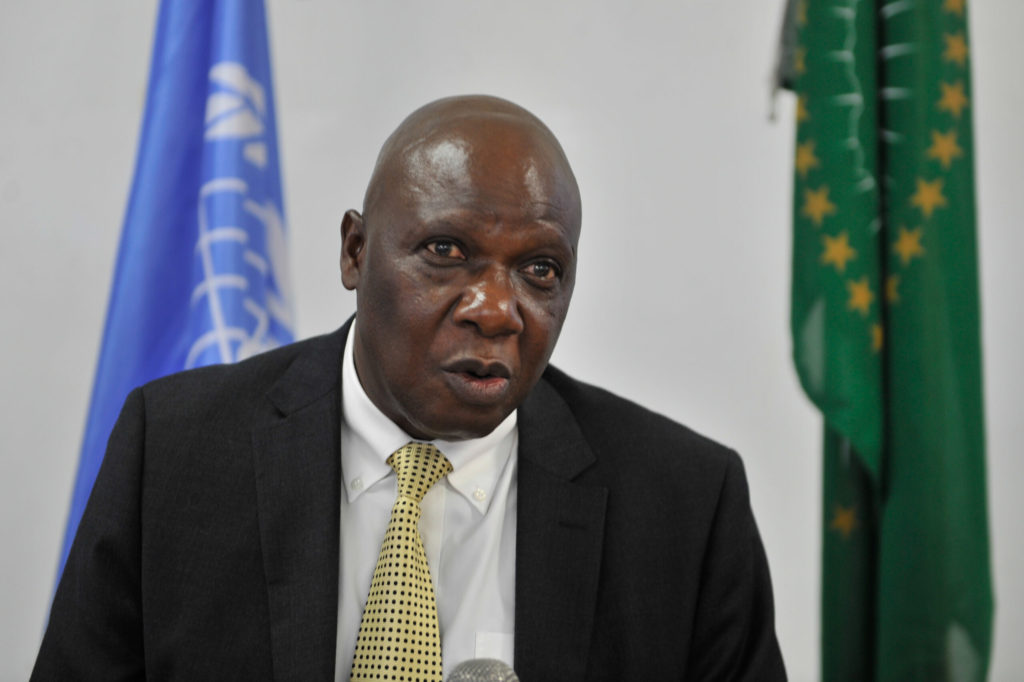
- At least two people were killed and several wounded after clashes broke out early Saturday, August 27, between rival militias in Tripoli, a medical source told The Libya Update. According to multiple press reports, one of those killed was identified as Mustafa Baraka, an actor and comedian known for his social media videos. Baraka died after he was shot in the chest and his body was taken to a Tripoli hospital, reported The Washington Post. Footage circulated online showed houses and vehicles apparently damaged from the fighting.
-
Intense fighting erupted in the Libyan capital overnight and lasted until Saturday, August 27, with rival factions exchanging heavy gunfire and the sounds of several loud blasts ricocheting around the city. The clashes took place in Tripoli’s city centre, witnesses said, amid a political standoff over control of Libya’s government that has seen armed groups increasingly mobilize around the capital in recent weeks. Asma Khalifa, a Libyan researcher at the German Institute for Global and Area Studies, also reported heavy clashes in Tripoli. She stated via Twitter on Saturday morning that “armed groups in the city will always look to expand their own power and influence”.
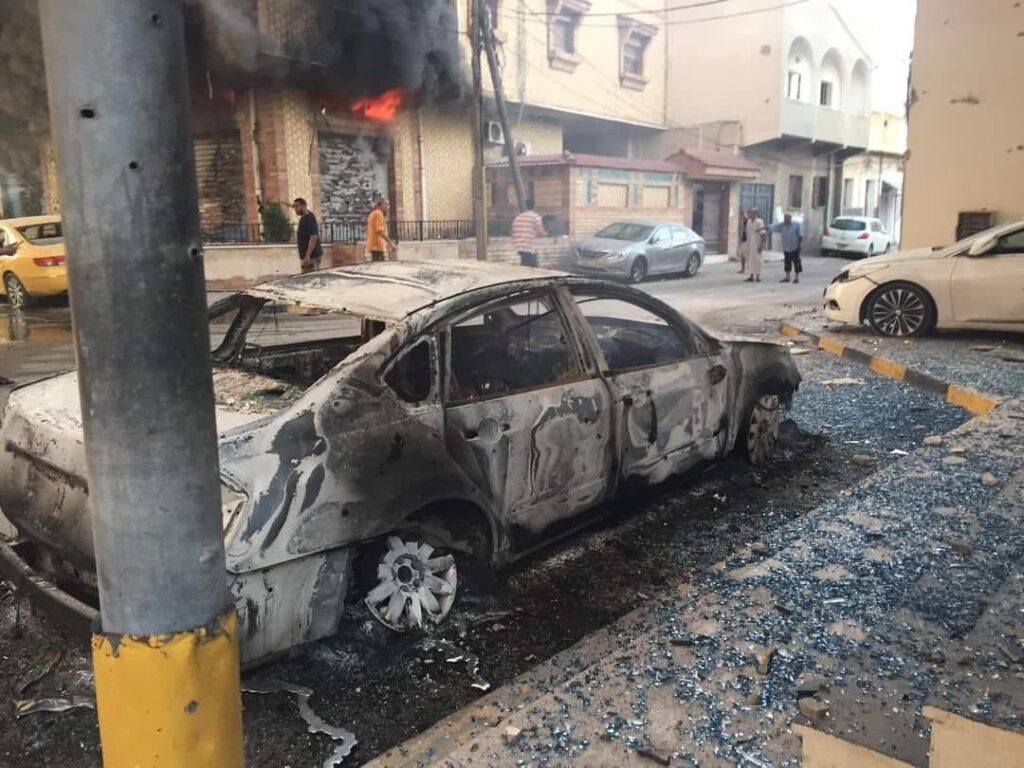
-
The drone that was shot down by the Libyan National Army (LNA) near Benghazi on Monday, August 22, belongs to U.S. Africa Command, according to AFRICOM Deputy Chief and Spokesperson, Timothy Pietrack..The drone was in Libyan airspace to support diplomatic commitments of U.S. ambassador Richard Norland to be made in eastern Libya, in coordination with Libyan authorities, Pietrack said in press statements. “The incident is under investigation and we do not have any other information at the moment,” he added. It is noteworthy that LNA Spokesman, Major General Ahmed Al-Mismari, had revealed details of unidentified drone shot down near Benina in Benghazi, pointing out that it was not a filming drone, but rather a fighter drone carrying missiles, which entered Libyan airspace.
- Spokesman of the Libyan National Army (LNA), Major General Ahmed Al-Mismari, revealed details of unidentified drone shot down near Benina in Benghazi, pointing out that it was not a filming drone, but rather a fighter drone carrying missiles, which entered Libyan airspace. Al-Mismari said on Al-Arabiya Al-Hadath TV channel, “LNA dealt with the plane on the basis of a friendly target, by contacting the civil aviation tower and air bases, but they had no information, so it was treated as unidentified, and then to a hostile plane, according to civil defense norms, then it was destroyed.”
- A total of 140 migrants, including eight women and a minor, were intercepted during the last week when they tried to cross the Mediterranean before being brought back to Libya, the International Organization for Migration (IOM) reported on Monday, August 22. Between August 14 and 20, those rescued aboard three precarious boats were disembarked in the ports of the capital, Tripoli, and the city of Zawiya (west), although no human losses were recorded, according to the latest report from IOM.
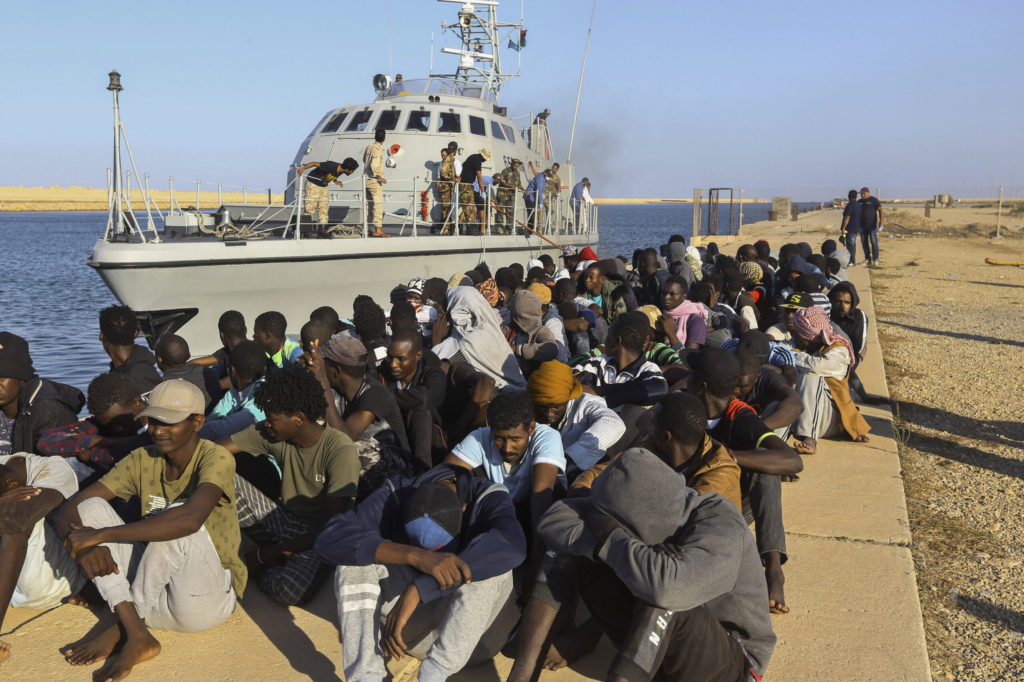
- The lifeless bodies of three migrants coming from sub-Saharan Africa were recovered on Sunday, August 21, in Ras Jedir, at the border with Libya, Italian news agency Ansa reported on Tuesday. Ansa cited Tunis Afrique Presse, a Tunisian news agency, which reported that, according to its source, the bodies were buried in a cemetery near the port of ‘El Ketf’, in Ras Jedir.
- Forces of the Libyan National Army (LNA) on Monday, August 22, shot down an unmanned drone near Benghazi via a man-portable surface-to-air missile system (MANPAD), according to LNA’s media office. “The air defense media of the General Command targeted an unidentified filming drone that entered the skies of Benghazi near Al-Rajma and the Benina base and brought it down,” LNA said. LNA, which has territorial control over eastern and southern Libya, confirmed that the drone entered Benghazi’s skies without authorization.
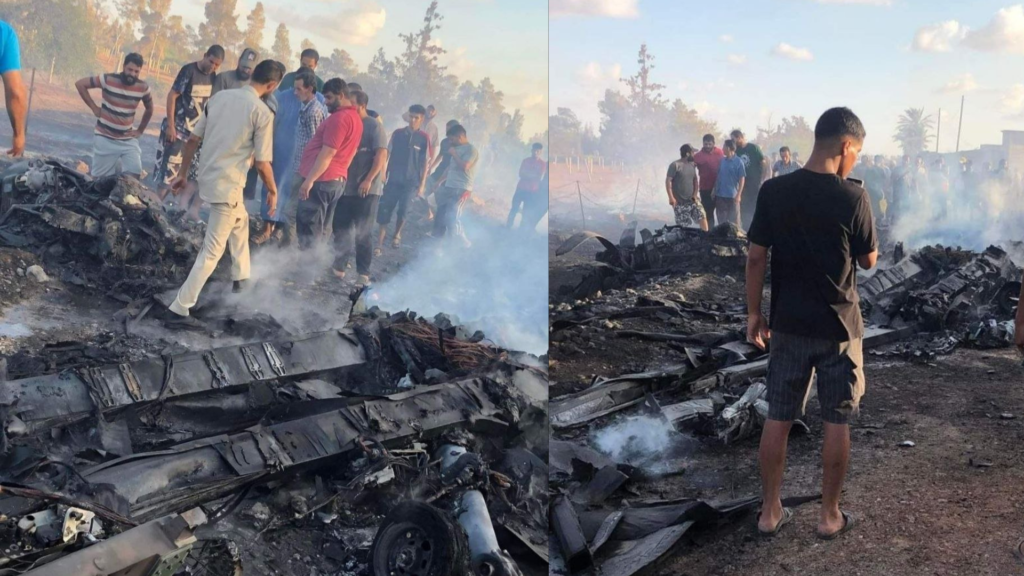
- A child was confirmed dead and two others were injured as a result of so-called “celebratory shooting” that hit their home in Sabha last Thursday, the U.N. Children’s Emergency Fund (UNICEF) said on Sunday, August 21. In a statement via Twitter, UNICEF identified the deceased victim as 6-year-old boy named Ayoub and expressed “concern” about the incident involving his death. “Children in Libya continue to be exposed to guns and heavy weaponry violence at home and in their neighbourhoods,” said the U.N. agency. “These incidents impact children’s psychological and mental well-being and can have a long-term impact.”
NATIONAL POLITICS AND SOCIAL ISSUES
-
Libyan Prime Minister Fathi Bashagha said outlaw criminal groups under order of outgoing Prime Minister Abdul Hamid Dbeibeh caused security chaos and terrorized Tripoli. Bashagha said in a statement Sunday that the renounces violence and adheres to peaceful exercise of political right. The statement accused Dbeibeh of taking advantage of state’s resources and capabilities, supporting armed groups that consolidate his rule and authority.
- France condemned on Sunday, August 28, the clashes that took place in Tripoli and caused a number of deaths and the destruction of some hospitals infrastructure. France, along with the United Nations, urged all parties to fully respect the ceasefire agreement concluded on October 23, 2020. In a statement published through its embassy in Libya, France reminded all parties of their obligations with regard to international humanitarian law and the protection of civilians. It also encouraged the Libyan parties to act constructively and engage in dialogue to ease tensions and preserve Libya’s unity and stability.
- The U.N. Secretary-General António Guterres is following “with deep concern” violent clashes which took place in the Libyan capital Tripoli causing civilian casualties, said Stéphane Dujarric, a spokesman for Guterres, on Saturday. According to Dujarric, the Secretary-General calls for “an immediate cessation of violence in Tripoli.” “He urges the Libyan parties to engage in a genuine dialogue to address the ongoing political impasse and not to use force to resolve their differences,” said Dujarric.
- The Acting Head of the U.N. Mission in Libya (UNSMIL), Raisedon Zenenga met on Wednesday with Chairman of Libya’s High Council of State, Khaled Al-Mishri, to discuss the political stalemate and “the escalating tensions on the security front,” UNSMIL said on Thursday, August 25. During the meeting, Zenenga stressed that it is “critical for all sides to maintain calm and defuse current tensions.” He assured Al-Mishri of “the UN’s strong support” for dialogue with House Speaker Aguila Saleh and stressed “the imperative to finalize a constitutional framework for national elections as soon as possible.”
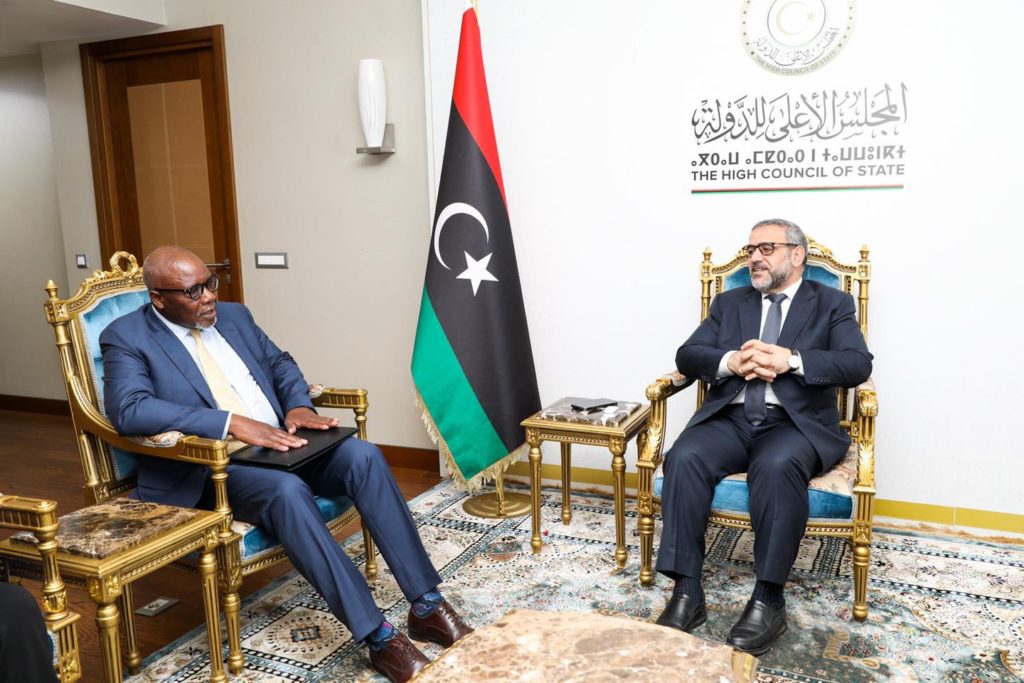
- Abdul Hamid Dbeibeh affirmed on Thursday, August 25, that his government will “continue to operate normally, with international recognition, until elections are held,” amid growing tensions between him and his parliament-appointed rival Fathi Bashagha. The day before, he and Bashagha engaged in tit-for-tat as they released statements addressing each other publicly, with each calling on the other to give up pursuit of power. The rivalry over Libya’s leadership between the two began Bashagha was selected by the House of Representatives to lead the country as interim premier last February, thus effectively terminating the legislative legitimacy of Dbeibeh’s government. However, the latter refuses to relinquish power and remains recognized as the country’s leader by the international community.
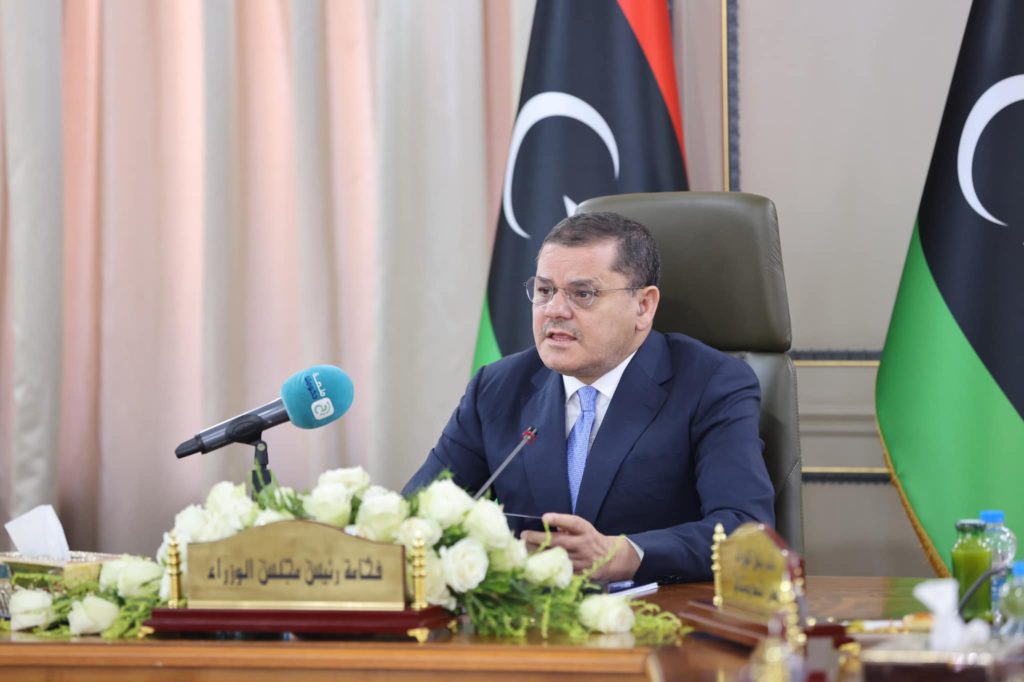
-
Libya’s Prime Minister-designate Fathi Bashagha urged his outgoing rival Abdul Hamid Dbeibeh to peacefully handover power to him amid growing military tensions in Tripoli. The capital is torn between armed groups loyal to Bashagha, who was selected by the House of Representatives to lead the country as interim premier last February, and groups which support Dbeibeh, who refuses to relinquish power and remains recognized as the country’s leader by the international community.
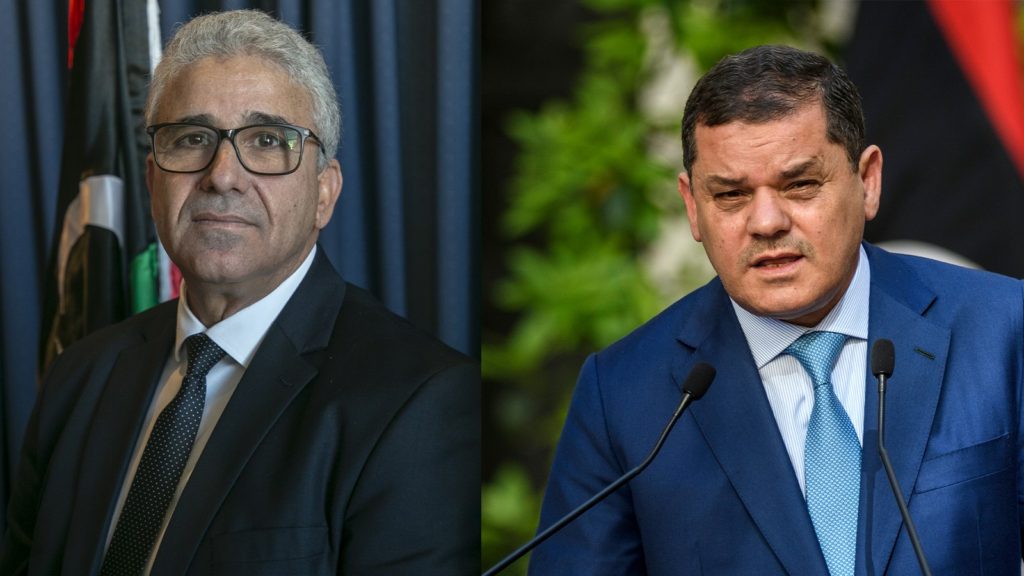
- The government of Prime Minister-designate, Fathi Bashagha, released a statement on Tuesday, August 23, in which it notifies “everyone, without exception, that there will be injustice or fighting with those who side with legitimacy and choose the homeland.” “We extend our hands in peace and seek to prevent bloodshed, and whoever bears arms against the government will be pursued by law,” reads the statement of the government. The statement’s release follows appeals by the United States and the United Nations for Libyan parties to refrain from use of violence amid growing mobilization of forces in Tripoli, which could escalate into conflict.
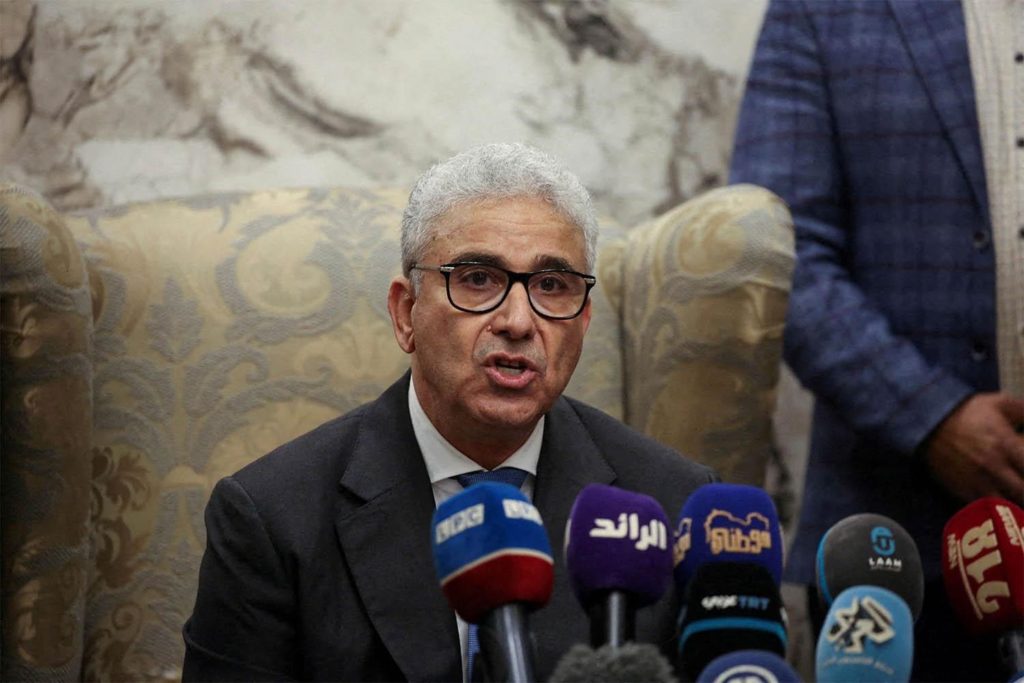
- The United States is “deeply concerned by renewed threats of violent confrontation in Tripoli and calls for immediate de-escalation by all sides,” said the U.S. State Department on Monday, August 22. Ned Price, a spokesman for the State Department, said in a statement that his country calls on “those who risk once again being dragged into violence to put down their arms and in particular urge Libya’s leaders to recommit themselves without delay to identifying a constitutional basis for presidential and parliamentary elections.” “The ongoing instability is a reminder of the urgent need for the appointment of a new UN Special Representative of the Secretary General for Libya to resume mediation efforts, with unified support from the international community,” added spokesman.
- Libya and Italy agree on the urgency of appointing a new U.N. envoy to “accelerate the political process towards national elections,” said Rome’s Special Envoy to Libya Nicola Orlando on Monday, August 22. The Italian diplomat’s statement came following a phone conversation he had with Libyan Foreign Minister Najla Mangoush this morning. “I renewed Italy’s call to all stakeholders to preserve calm on the ground, reject destabilizing unilateral actions, and resolve all differences through dialogue and compromise,” said Orlando via Twitter. “I stressed the need for a unified, inclusive executive to lead the country to elections.”
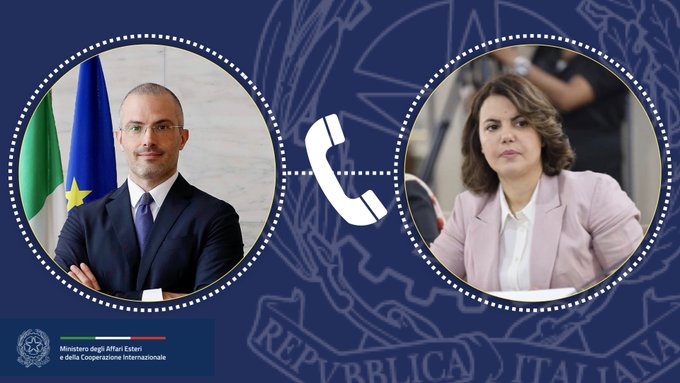
- Libya’s outgoing prime minister Abdul Hamid Dbeibeh was urged by Turkey to peacefully give up power after he was ousted by the Libyan House of Representatives, Libyan TV channel Al-Masar reports. Citing unnamed source, Al-Masar said the the Tripoli-based premier was also asked to avoid any military escalation. Dbeibeh is yet to respond to Ankara’s demands, but he communicated to the Turks that he needs more time to consult with his advisors, according to Al-Masar.
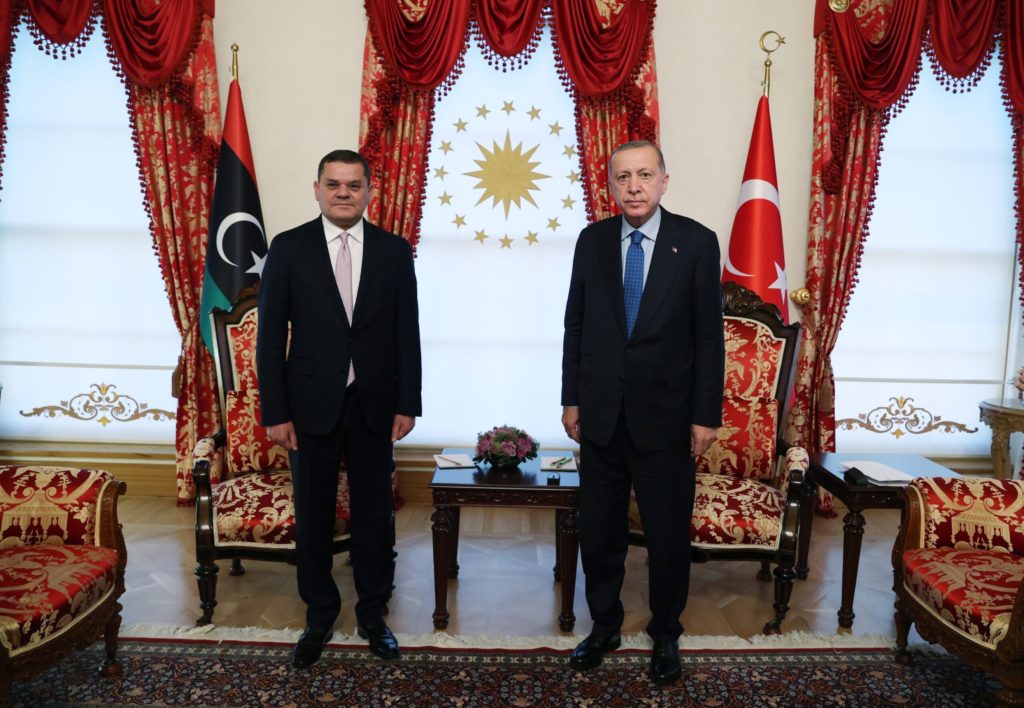
- Libyan Supreme Court chancellors took the legal oath before the presidency of the House of Representatives, in the presence of House Speaker Aguila Saleh, on Monday, August 22. During the same parliamentary session, the House had adopted Resolution No. (8) of 2022, regarding the appointment of chancellors to the Supreme Court.
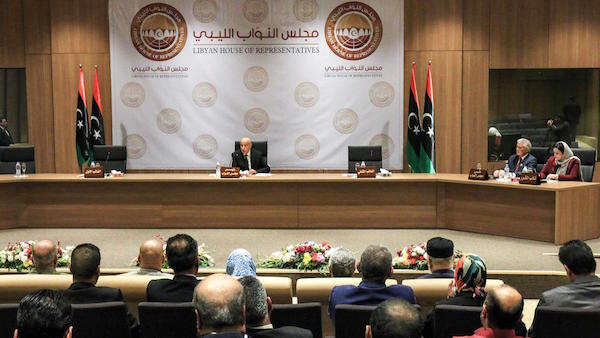
INTERNATIONAL RELATIONS
-
Libya met Tuesday with 25 partners and ministries in an event convened by the Ministry of Planning to discuss how to implement its new Country Program Document (CPD) 2023-2025, which will be presented to the UNDP executive board early next month, according to UNDP. Designed to advance development goals in three areas: democratic governance, sustainable growth and local peacebuilding and resilience, the new CPD for Libya will map out UNDP’s support in the country for the next three years and concentrate its cooperation in 30 municipalities, UNDP Libya said in a statement. During the discussion, UNDP Resident Representative, Mr Marc-André Franche, said: “UNDP’s new Country Programme is an opportunity to inject hope in the development path of Libya and demonstrate that positive change is possible.”
- An official Turkish delegation headed by Deputy Intelligence Service Jamal al-Din Çelik, accompanied by a representative of the Turkish Foreign Ministry visited Misurata and met with dignitaries and activists of the city and its municipal council. The Turkish delegation conveyed a presidential message that contained the need to maintain security and peace in Libya . The delegation requested the intervention of the Misurata Municipal Council and its dignitaries to solve the problem of the executive authority, given that its two prime ministers hail from the city.























